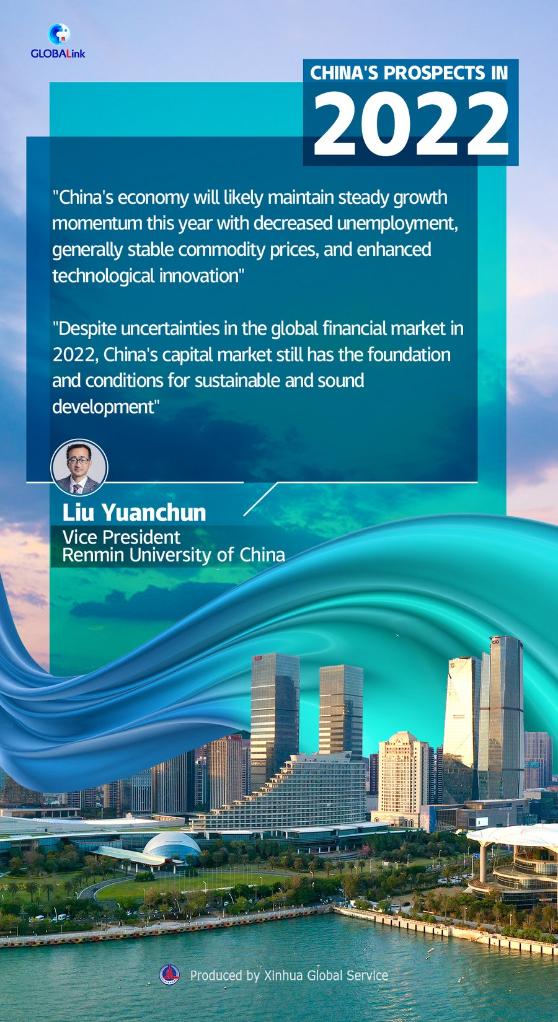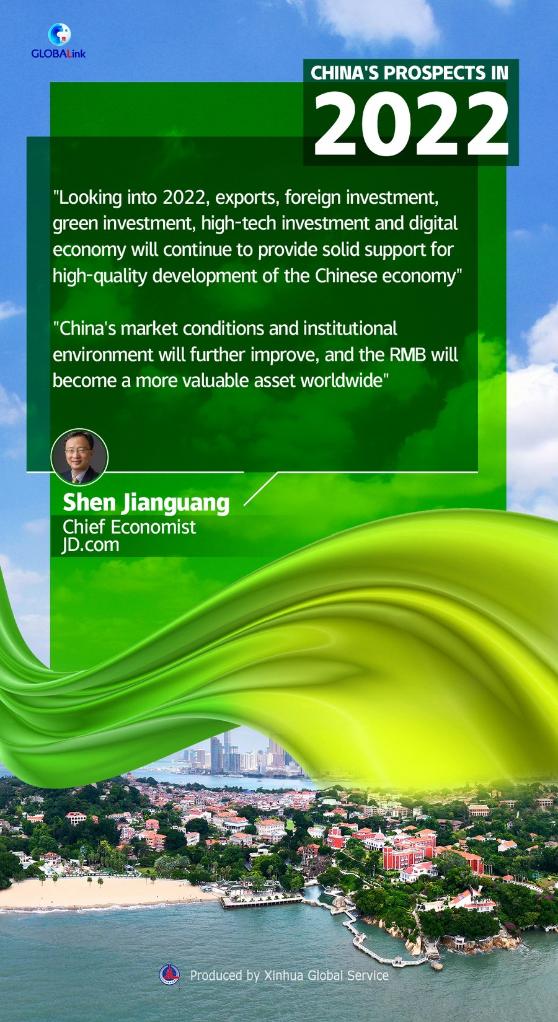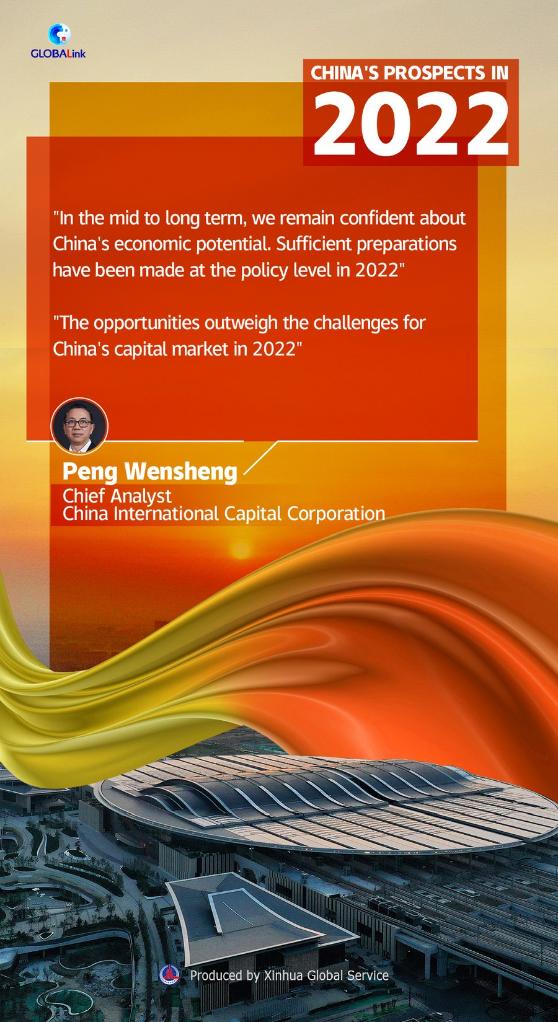
For China, the year 2021 was a milestone. Notable progress was made in high-quality development in the face of unexpected challenges and external uncertainties.
It was also a fresh start. The country embarked on a new journey to build itself into a modern socialist country -- the Second Centenary Goal -- by the mid-21st century.
Marching into the year 2022, will China sustain the momentum of economic growth? What are the policy priorities this year? What should be expected of China's capital market?
Xinhua asked economists their opinions on hot topics concerning China's prospects. Here are the answers.



Q1: How do you view the macroeconomic situation this year?
Despite the triple pressure of shrinking demand, supply shocks and weakening expectations, China's economy will likely maintain steady growth momentum this year, said Liu Yuanchun, vice president of Renmin University of China.
The country's economic growth potential is constantly strengthening with a dropping unemployment rate, generally stable price levels, stable and decreasing macro leverage ratios, enhanced scientific and technological innovations, ever-increasing international competitiveness, and comprehensively strengthening human capital, Liu added.
China is well-prepared at the policy level to meet the challenges this year, said Peng Wensheng, chief analyst with the China International Capital Corporation.
The country will probably see its economic growth accelerate in the second half of the year as there is a time lag between the introduction of policies and their effects, Peng said.
Exports, foreign investment, green and high-tech investment, and the digital economy will continue to provide solid support for the high-quality development of China's economy, said Shen Jianguang, chief economist with JD.com.
Q2: What will likely be this year's policy priorities?
There is the apparent signal of ensuring stable growth from the authorities who will continue the prudent monetary policy and proactive fiscal policy, said Liu.
Green investment, tax and fee cuts, and transfer payments will be focused on, in addition to traditional infrastructure, said Peng.
He added that the government will be extremely cautious in introducing policies that have a tightening effect and there is less chance that regulatory policies will be introduced simultaneously in certain sectors.
The platform economy supervision system, which emphasizes both regulation and development, will be gradually improved, contributing to the long-term, healthy development of the sector and boosting enterprise expectations and confidence, said Shen.
Q3: What new investment opportunities will open up for all?
China will aim at making breakthroughs in scientific and technological innovations and shoring up weak links in domestic industrial and supply chains, among others, which will need much investment, said Liu.
Behind China's carbon peaking and carbon neutrality goals, rural vitalization and consumption upgrading are immense investment opportunities, said Peng.
Shen noted the investment potential in new infrastructure and advanced manufacturing.
Q4: How do you see the future development of the housing market?
China will continue sticking to the principle of "housing is for living in, not for speculation," Shen said, adding that future policies will better coordinate stable growth and risk prevention in the sector.
The government will adopt city-specific policies to boost the virtuous cycle and healthy development of the sector, he said.
Peng said the default of individual property developers will not lead to systemic impacts, and risks are being defused in an orderly manner.
Housing demand remains strong with many first-time home buyers and those who crave better living conditions, which forms the foundation for long-term, steady and sound development of the real estate sector, Liu said.
Q5: What to expect of China's capital market as uncertainties mount in the global financial market?
Despite uncertainties in the global financial market this year, China's capital market still has the foundation and conditions for sustainable and sound development, Liu said, quoting the steady growth momentum of the Chinese economy, more ample liquidity and continued reforms.
The opportunities outweigh the challenges for China's capital market in 2022, said Peng.
He said China's policies to stabilize growth are the opposite of policy tightening and downward cycle overseas.
In the future, China's market conditions and institutional environment will further improve. The country's capital market will become more attractive and the yuan-denominated assets will become more valuable, said Shen.